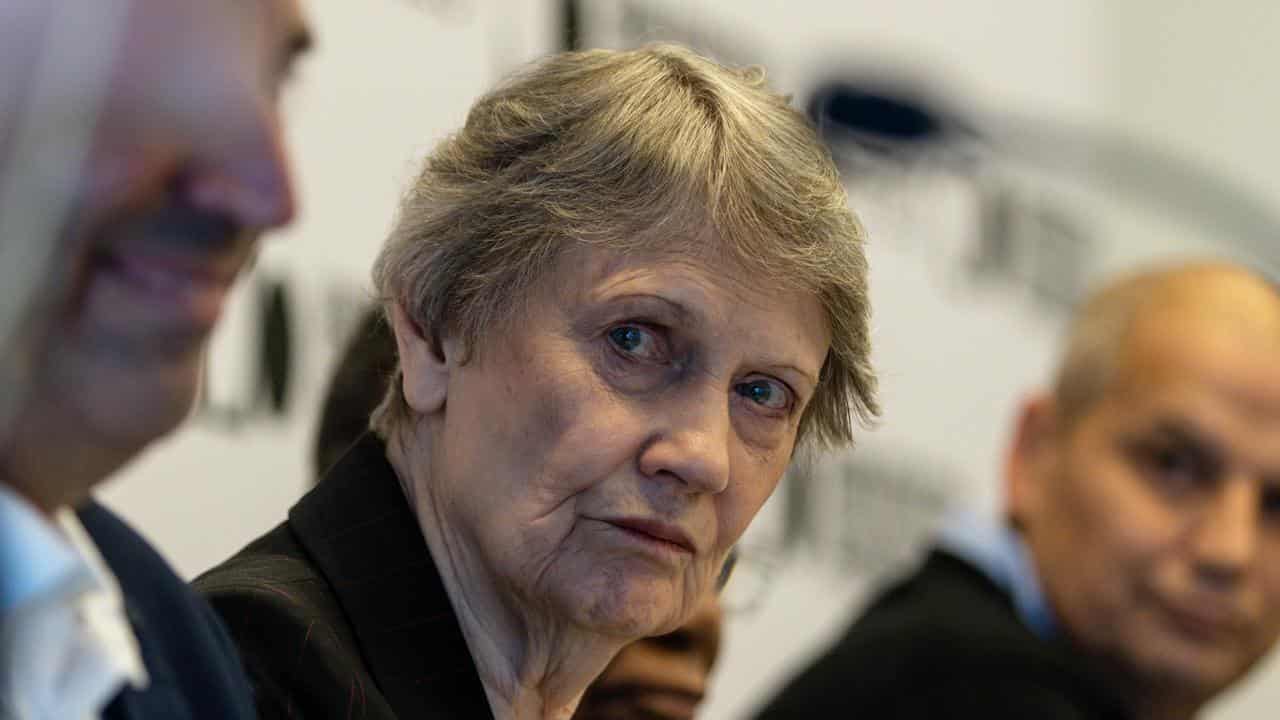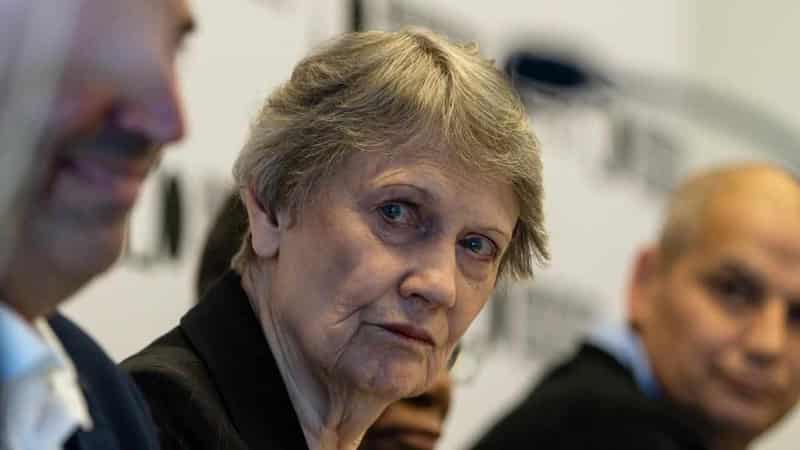
Former Prime Minister Helen Clark warns a "profoundly undemocratic" shift in New Zealand's foreign policy is taking place, warning the coalition government off a geopolitical shift which Kiwis didn't vote for.
Chris Luxon's right-leaning National-led government has leaned into "traditional" partners - such as Australia and the United States - since taking office last November.
Under new leadership, New Zealand has deepened interest in associate membership of the AUKUS defence pact, which would see New Zealand solidify its defence ties with Washington DC in a way unseen in 40 years.
New Zealand's operational involvement in the ANZUS Treaty ceased in the mid-1980s, when US secretary of state George Schultz confirmed its exit.
"We part company as friends, but we part company, as far as the alliance is concerned,'' Mr Shultz said.
Despite that, Mr Luxon's coalition has invoked the ANZUS Treaty to describe the foundations of its international security.
After an ANZMIN meeting in Melbourne in February, the joint communique noted "the enduring nature of the ANZUS Treaty, which continues to underpin the strategic relationship between the two countries, 72 years after it was signed".
Under questioning from AAP this week, Mr Luxon confirmed the references to ANZUS were deliberate.
"We declare very strongly wanting to be a very important part of the ANZUS relationship," he said on Monday.
On Tuesday, he added "we reasserted our belief in ANZUS" and "we're deeply committed ANZUS partners. Deeply committed".
To Ms Clark, New Zealand's most prominent international voice in recent decades and prime minister from 1999 to 2008, it's a move away from her country's long-held independent foreign policy.
While a member of the Five Eyes intelligence sharing network, with Australia, Canada, the US and UK, New Zealand has tended to walk a middle path between the pull of the major powers.
Ms Clark believes Mr Luxon committed to that during the election, which was devoid of foreign policy debate.
"There was no warning of the lurch that we are seeing now away from hitherto bipartisan settings," Ms Clark told AAP.
"There is something profoundly undemocratic about what is happening.
"New Zealand has worked carefully on a bipartisan basis for decades to balance its economic interests, democratic values, and nuclear free and independent foreign policy.
"This continues to be possible if politicians keep their nerve and are not drawn into geopolitical games driven from elsewhere."
Mr Luxon notes the government's interest in AUKUS pillar two membership is a continuation of Labour's own investigations.
Since losing office, Labour leader Chris Hipkins has gone cold on the pact, opening up the split.
"I don't think we want to be wedged into particularly a conflict between China and the US ... where we are picking one side or the other," he said on Tuesday.
"ANZUS is is not an active part of our foreign policy and hasn't been for a long time."
To Rebuen Steff, a senior foreign policy lecturer at the University of Waikato, suggestions of a radical change from business as usual are overblown.
"NZ governments - both Labour/National are responding to structural pressures; China's attempt to change the balance of influence in the South Pacific - our region," he wrote on social media.
The spat comes after an election last year which was devoid of foreign policy debate.
The only foreign policy difference acknowledged by Mr Luxon between the major parties was his pledge to expel the Russian Ambassador in response to their ground invasion of Ukraine.
Mr Luxon's government did not follow through with the expulsion, instead opting to follow advice from Mr Peters not to do so.
Both Foreign Minister Winston Peters and Defence Minister Judith Collins are in the US this week.
Mr Peters is in New York and Washington DC with engagements at the United Nations and with the Biden administration, while Ms Collins is at a space symposium meeting with defence leaders in Colorado and California.









